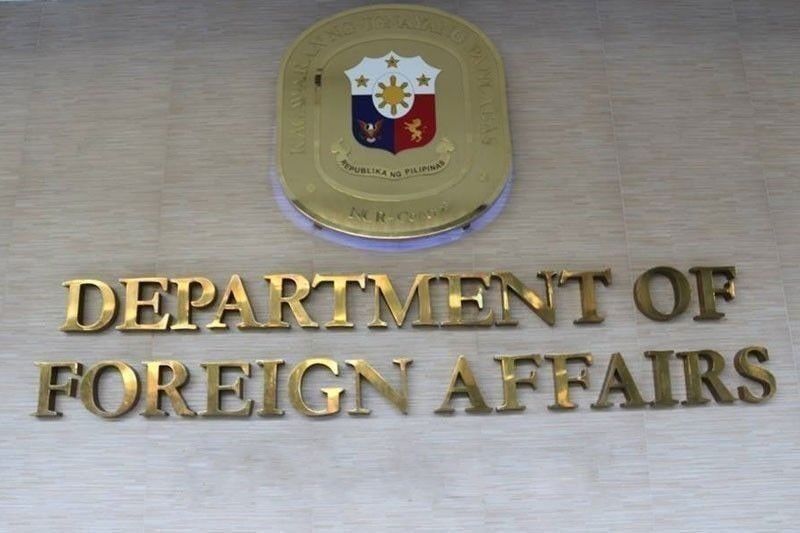DFA monitoring alleged espionage operations

MANILA, Philippines — The Department of Foreign Affairs (DFA) is taking seriously any indication of foreign espionage operations in the country and stands ready to support the Department of Justice, National Bureau of Investigation, the Armed Forces and other government agencies in their investigations.
In a statement, DFA spokesperson Ma. Teresita Daza said the “Department notes the ongoing investigation being conducted by relevant law enforcement agencies regarding alleged espionage operations allegedly being conducted in the Philippines by a foreign national in collaboration with Filipinos.”
To help protect national security, Daza said the DFA is taking any espionage in the country seriously, in apparent reference to the arrest of suspected Chinese spy Deng Yuanqing and two Filipino associates.
The Chinese is accused of conducting surveillance in military and civilian facilities from northern Luzon to the Bicol region, including areas where sites for enhanced defense cooperation activities between the Philippines and the United States are located.
Following this, Cagayan de Oro City Rep. Rufus Rodriguez found a timely push for the two anti-espionage bills he filed in the House of Representatives that seek to penalize spies.
“The arrest of these suspected Chinese and Filipino spies should prompt Congress to immediately pass bills that would expand the coverage of the crime of espionage,” Rodriguez said, referring to House Bills 10983 and 10988.
Rodriguez introduced the two measures days after Defense Secretary Gilberto Teodoro Jr. appealed to Congress to amend the current espionage law, the Commonwealth Act 616 that was enacted in 1941, which ironically “is only effective during times of war.”
“We have not heeded the appeal of our defense secretary, made five months ago. We have not addressed concerning developments in the area of spying and we have not updated our law since 1941, more than 80 years ago,” he lamented.
“We do not act until it is too late, until the proverbial ‘kabayo’ or horse is dead,” Rodriguez said.
HB 10983 seeks to expand the coverage of espionage to include unlawfully disclosing classified matter or information affecting national security or national defense; disloyal acts or works in time of peace or in times of war; conspiracy, harboring and concealing violators; and photographing of defense installations, aircraft, drone or similar machines or devices.
It would also penalize the reproduction, publishing, selling, or giving away of any photograph, sketch, picture, drawing, map or graphical representation of vital government installations or equipment; the injuring or destroying of national defense or national security material, documents or premises; and making or causing to be made in a defective manner of national defense material.
HB 10988, on the other hand, would include spying activities in times of peace in the coverage of the anti-espionage law.
Rodriguez proposed the imposition of heavier graduated penalties on offenders, ranging from a jail term of 10 years to 12 years or a fine of not less than P500,000 to life imprisonment and a fine of not less than P2 million. – Delon Porcalla, Jose Rodel Clapano
- Latest
- Trending































